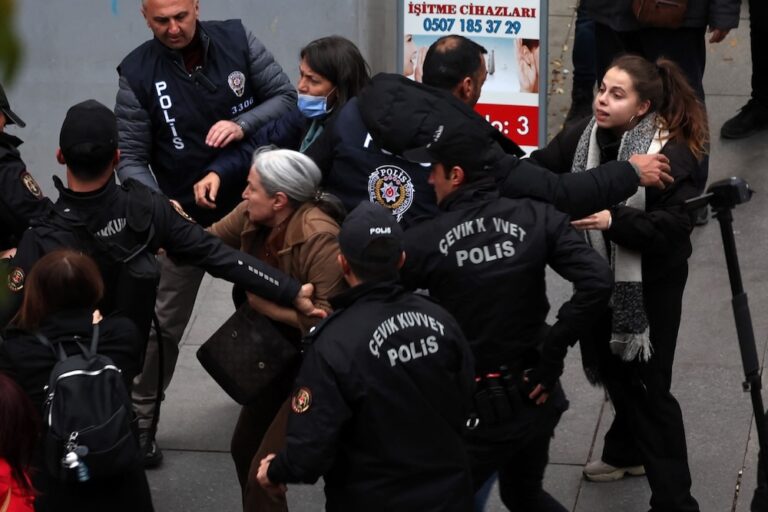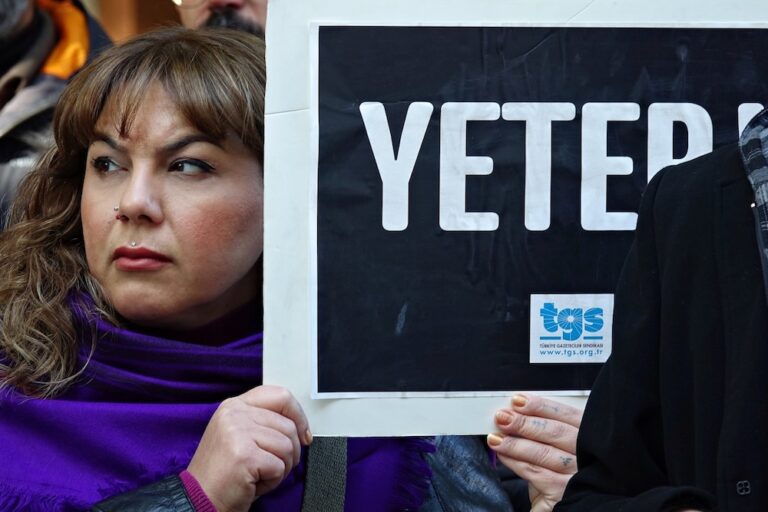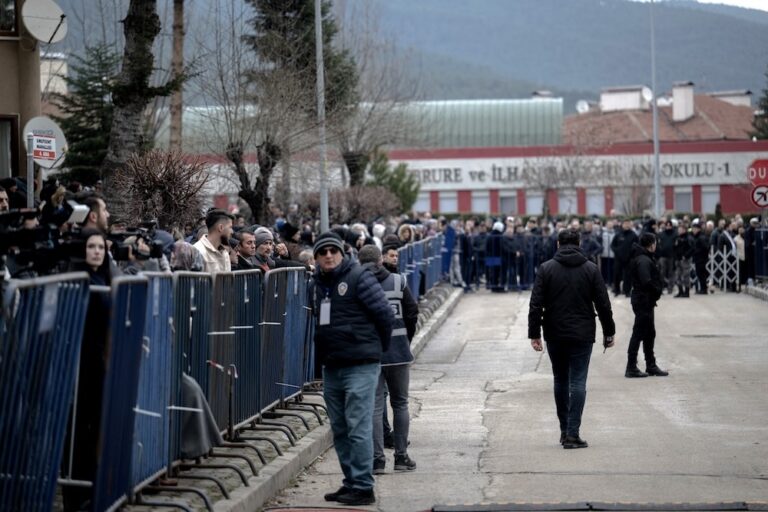(WAN/IFEX) – A “human rights coordinating committee” charged with examining measures to “expand freedom of the press and freedom of expression” will report its findings to the Turkish Cabinet “by December”, a delegation from the World Association of Newspapers (WAN) was informed in Ankara on 5 November 1997. Mr Sukru Sina Gurel, Minister of State […]
(WAN/IFEX) – A “human rights coordinating committee” charged with
examining measures to “expand freedom of the press and freedom of
expression” will report its findings to the Turkish Cabinet “by
December”, a delegation from the World Association of Newspapers
(WAN) was informed in Ankara on 5 November 1997. Mr Sukru Sina
Gurel, Minister of State for Foreign Affairs, who is the official
government spokesman, said the Cabinet would then try and “figure
out what we do”. However, in response to a WAN demand that full
freedom of expression should be allowed in any law reform
package, Gurel warned firmly that “no state can tolerate calls
for separatism” and that Turkey would be no exception. He added:
“freedom of the press is not unlimited, nor should it be. If
some-one pays lip-service to terrorist activities or acts on
their behalf as a mouthpiece, probably this should not be
included within the concept of freedom of the press.” WAN told
Gurel that continued limitations on the expression of opinions or
facts were unacceptable.
The Minister informed WAN that the justice department and foreign
ministry had so far investigated 51 of the 78 cases of
imprisonment of journalists that it had received from
international organizations. They had found fourteen cases
“connected to membership of terrorist organizations”, four
convictions for “terrorist acts”, twelve cases where the
prisoners “were not journalists at all”, seventeen cases where
prisoners had been released, and one case where the person was
jailed for “resisting law enforcement”. No information had been
found in two of the cases.
The WAN delegation also met General Cevik Bir, the powerful
Deputy Commander-in-Chief of the Turkish Armed Forces, together
with his Chiefs of Staff. General Bir vigorously defended current
limitations on freedom of expression as “necessary” for
protecting the territorial integrity and security of Turkey. He
said the restrictions in the Anti-Terror Law were “reasonable”
and “taken from Article 10 of the European Convention on Human
Rights”, which he read to the WAN group. General Bir described
“anyone who verbally or orally provides direct or indirect
support” to terrorist organizations as “collaborators” who should
be punished. He denied, however, that Turkey was “putting people
in prison for expressing their views”.
In his meeting and discussions with WAN, Turkish President
Suleyman Demirel also defended limitations on freedom of
expression. He said that, though Turkey was still trying to
decide “where freedom of expression begins and ends”,
safeguarding law and order was impossible if “one could say or
write whatever you wish”. President Demirel said that the Turkish
people would not accept that journalists were allowed to “support
terrorism”. He added: “Turkey will apply the same standards as
other democracies when you can guarantee that these standards
will keep Turkey together”.
In submissions to the government, the President and the Armed
Forces, WAN, whose delegation included publishers and editors
from Brazil, Canada, Cameroon, the Czech Republic, Lebanon,
Luxembourg, Spain, Turkey and the USA:
1. Noted with approval recent statements by the government about
its intentions and commitments to increase press freedom in
Turkey.
2. Noted with approval the passage of the recent press amnesty
law, and the subsequent release from prison of six editors.
3. Insisted that an amnesty be extended to all imprisoned
journalists, releasing them from jail and lifting the restrictive
conditions under which the six editors were released in August
1997.
4. Reiterated the position of many countries and international
organizations that Turkey needs to repeal those sections of the
Anti-Terror Law and the Penal Code which limit freedom of
expression and freedom of the press. Turkey’s laws should conform
with international covenants guaranteeing freedom of expression
and freedom of the media, and its judicial procedures should
follow those in practice in Western democracies.
5. Requested that the President and his government publicly
re-commit themselves to reforming press laws, and to submitting a
package of amendments in Parliament within a specific timetable.
The reforms of the press laws should achieve the following
results:
writers for “crimes” of freedom of expression and conscience;
system to prosecute journalists, editors and newspapers, and a
return to the use of ordinary courts to prosecute civil and
criminal offences;
Turkish and foreign journalists within the country.


